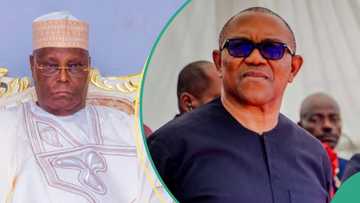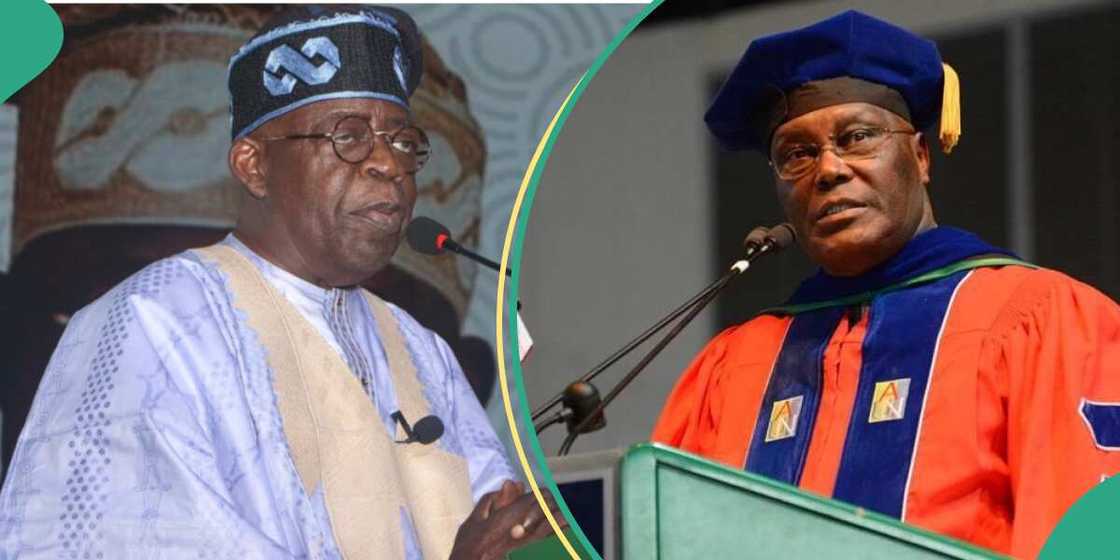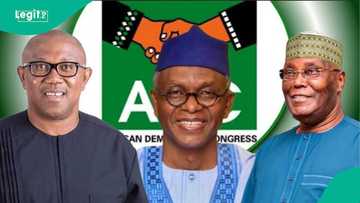2027 Election: Five Loopholes Atiku-Led Coalition May Use to Sack Tinubu, APC
- President Bola Tinubu would be facing a tough time in the 2027 election, with a stronger contest ahead of him in his second term bid
- The former Vice President Atiku Abubakar-led coalition recently adopted the ADC as its political platform, and the new political bride is already making waves
- No less than five obvious fault lines have been identified as the possible ground for the coalition to defeat President Tinubu and the APC in the 2027 election
Ahead of the 2027 presidential election, the coalition movement adopted the African Democratic Party (ADP) as its political platform. The coalition is quietly positioning itself to sack President Bola Tinubu and the All Progressives Congress (APC) in the next poll.
The coalition, led by former Vice President Atiku Abubakar, is currently making waves and gaining ground, with some leaders of the opposition parties, particularly those from the Peoples Democratic Party (PDP).

Read also
2027 election: Atiku’s camp reacts as Keyamo asks coalition to give Peter Obi presidential ticket

Source: Twitter
Vanguard reported that in the bid to take over power from the ruling party, the ADC may be looking at five fault lines to sack the APC in the 2027 general elections. Below are some of the fault lines:
Potential implosion in the APC
The internal crisis between the foundation factions (Action Congress of Nigeria, Congress for Progressive Change and newPDP) of the APC and the growing displeasure among the governors, as well as the party elders, over the allegation of lopsided appointments, unpopular economic reforms and centralised control. All these destabilised the ruling party.
For instance, the allegation that the president was planning to replace Vice President Kashim Shettima and the sudden resignation of Abdullahi Ganduje as the national chairman of the APC have the potential of leading to the implosion of the party.
The Kano, Kwankwaso's factor
The New Nigeria Peoples Party (NNPP) chieftain and former Kano governor, Rabiu Kwankwaso, controlled the political structure of Kano and some parts of the north-west region.
Initially, there was speculation that Ganduje's resignation would pave the way for Kwankwaso to join the APC, but with the launch of the ADC, it appeared that the former governor was calculating where the pendulum would swing in the northern part of the country before making his move.
Northern sentiment
Many of the northern elites feel that Tinubu's government shortchanged them. Thus, if the sentiment is not addressed, this could lead to the northern-led alternative movement, which would fragment the support base of the president.
Presently, the ADC has taken over the PDP structure in Yobe, Gombe and Adamawa states. It was learnt that many northern politicians who have been approached have yet to make the move to join the ruling party.

Source: Twitter
Anti-people's perception, Pro-institution agitation
Tinubu's administration is being considered an elitist government because of its policies on institutional building and fiscal tightening. However, the opposition leaders are of the view that the policies have no way of connecting with the people.

Read also
“How ADC coalition Is uniting politicians from various backgrounds, ideologies,” Analyst explains
Despite the reassurance that things would get better for the country, the opposition leaders have claimed that President Tinubu subjected the people to insecurity and economic hardship. They have projected the sentiment that the government focused more on reforms and showed less concern about the people's plight.
Emerging and stronger third force
The emergence of the ADC was still at its early stage, but it has shown a signal of some seriousness to be a coordinated third party.
There are indications that the coalition could be looking at the fractures in loyalty within the ruling party, and voter apathy could open the door for defection surge in the APC.
Source: Legit.ng



